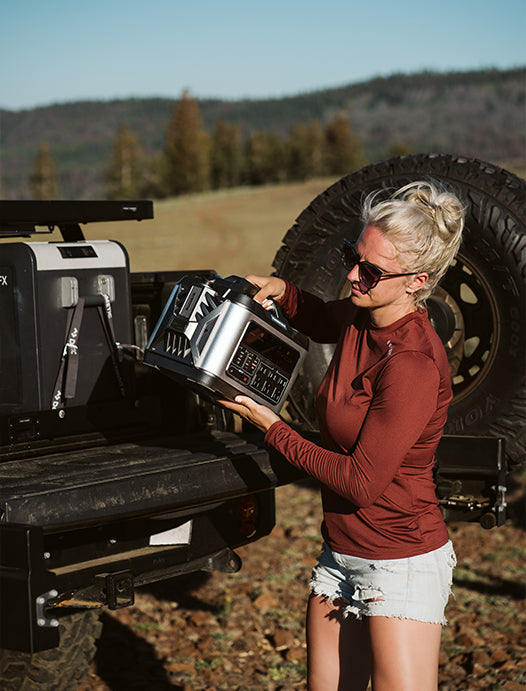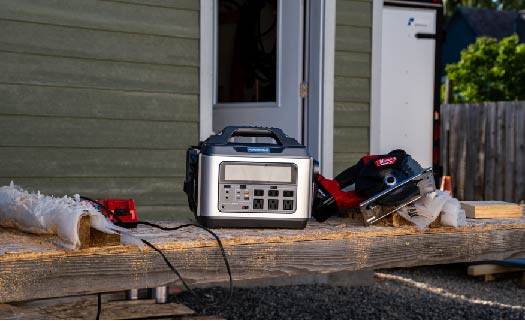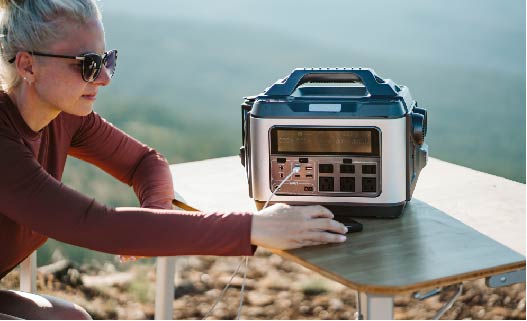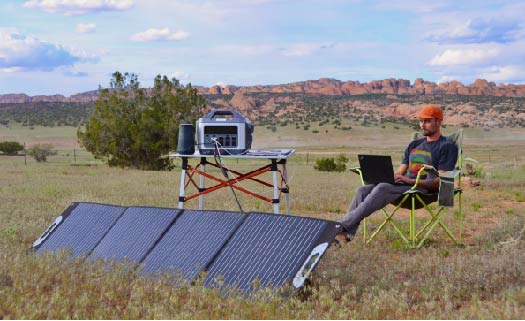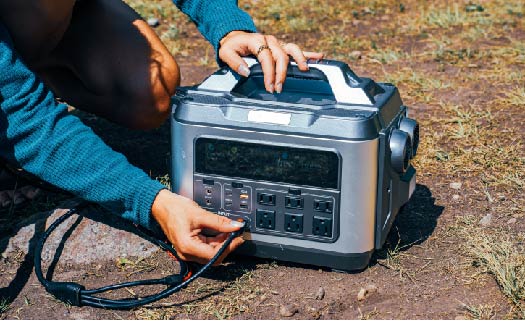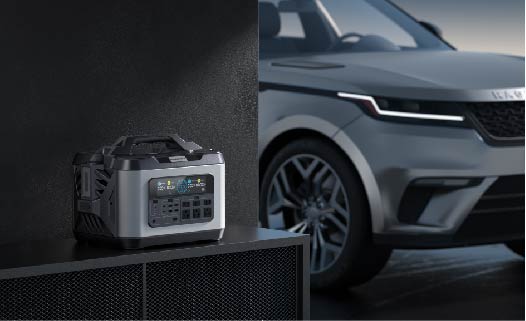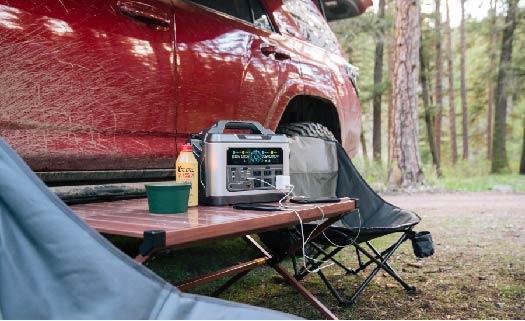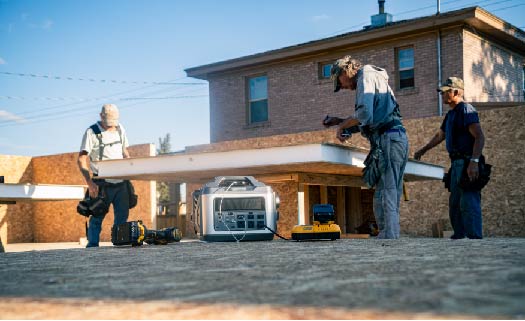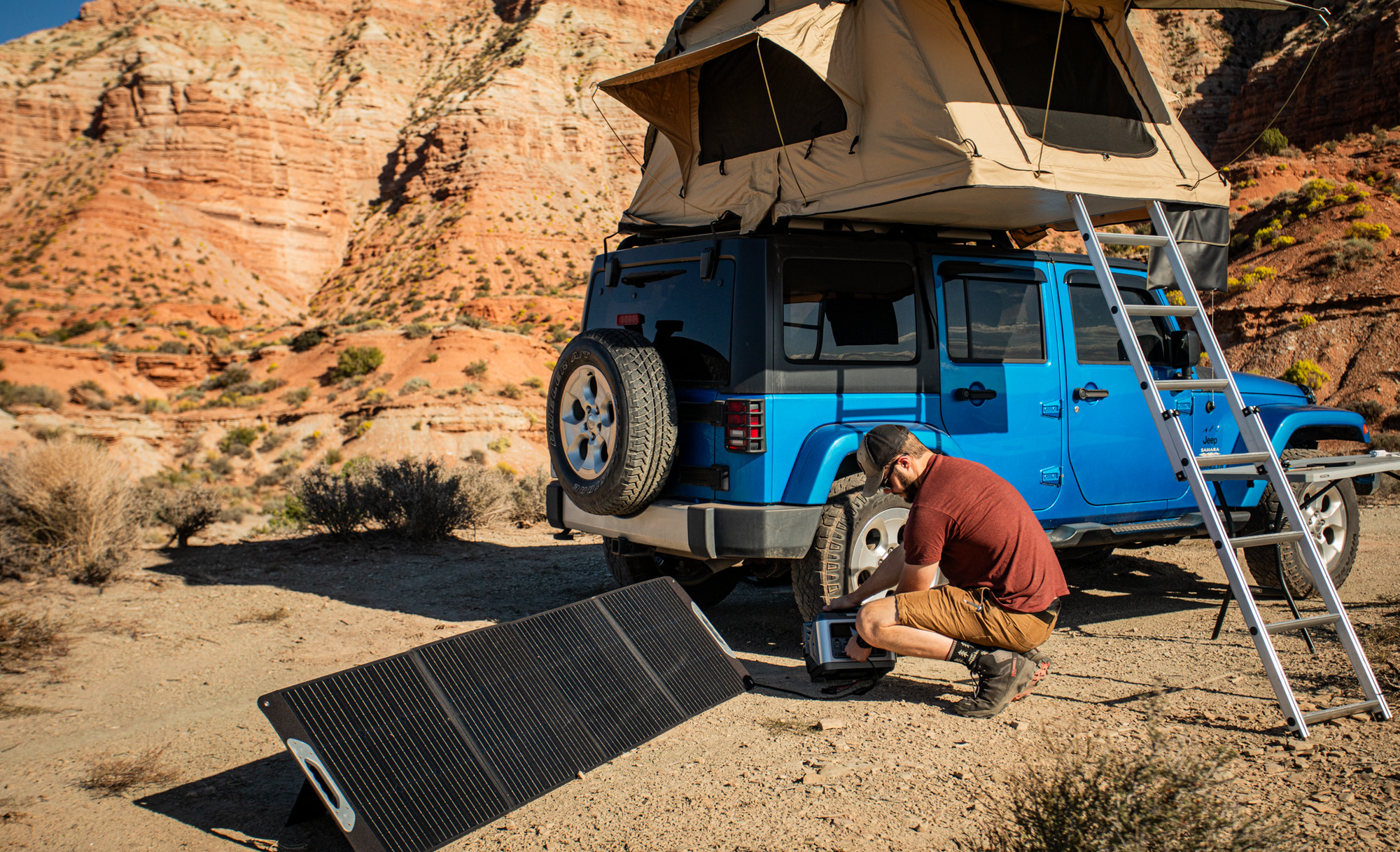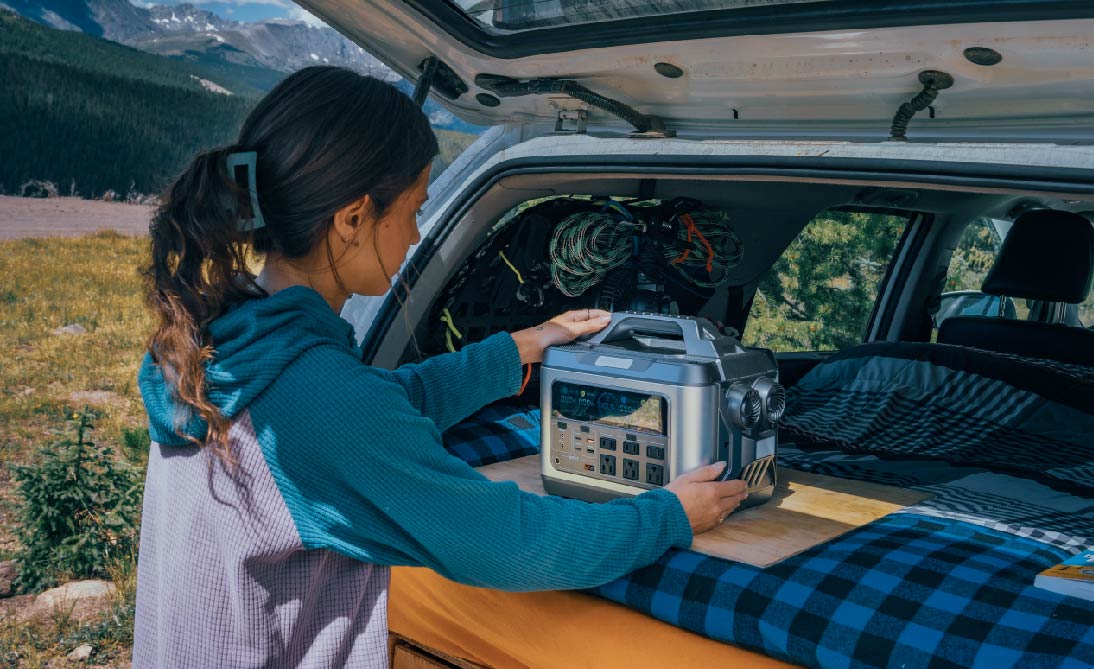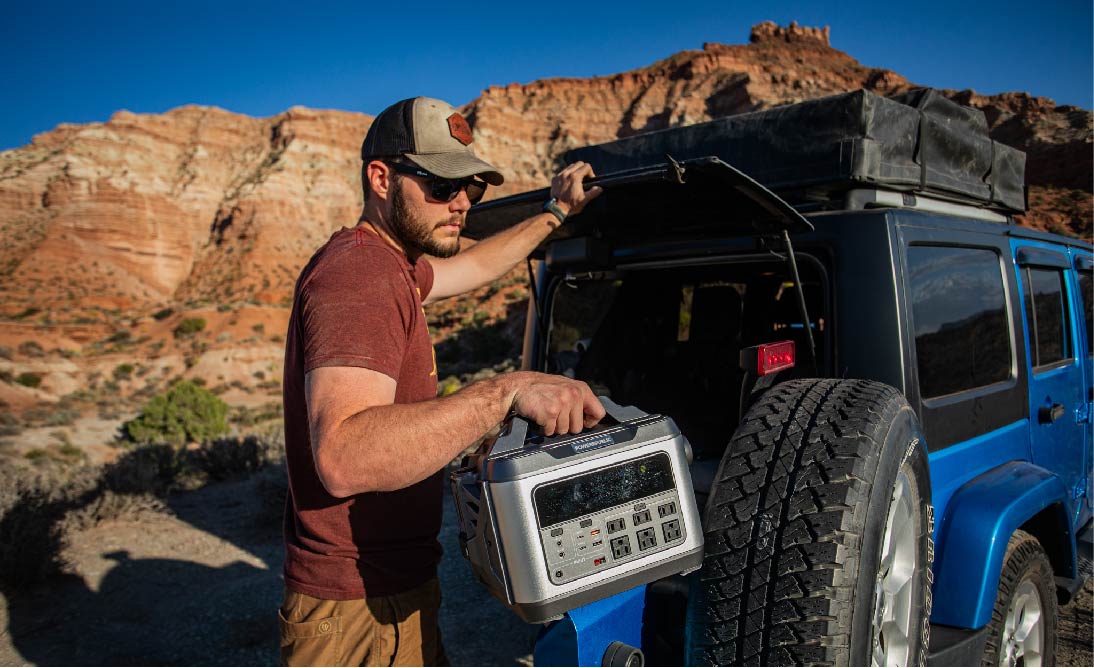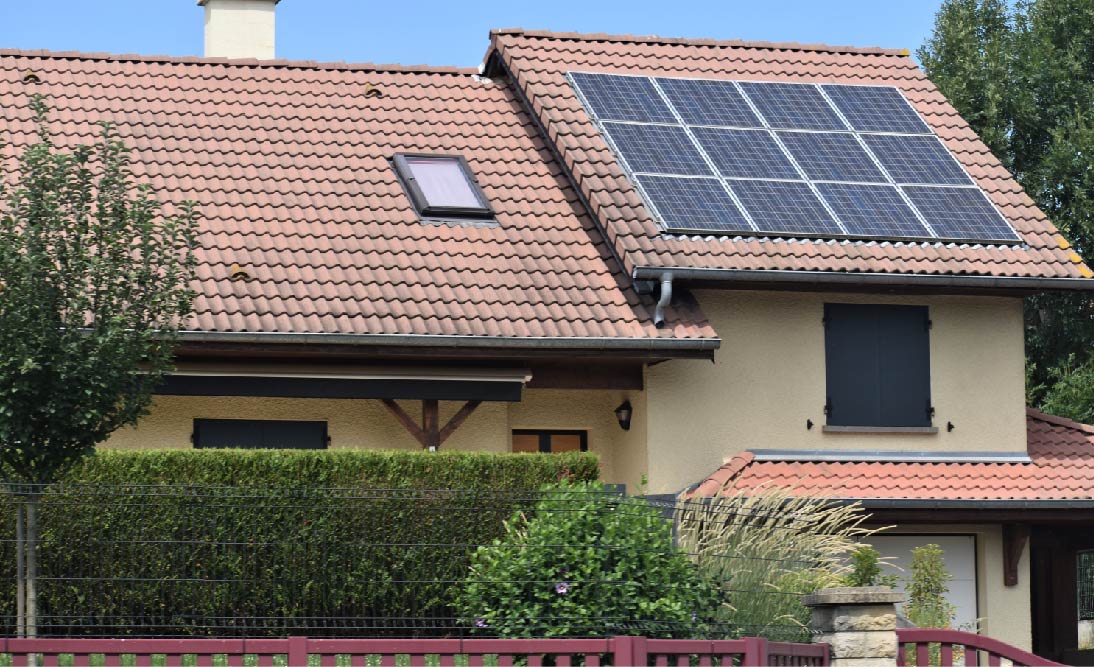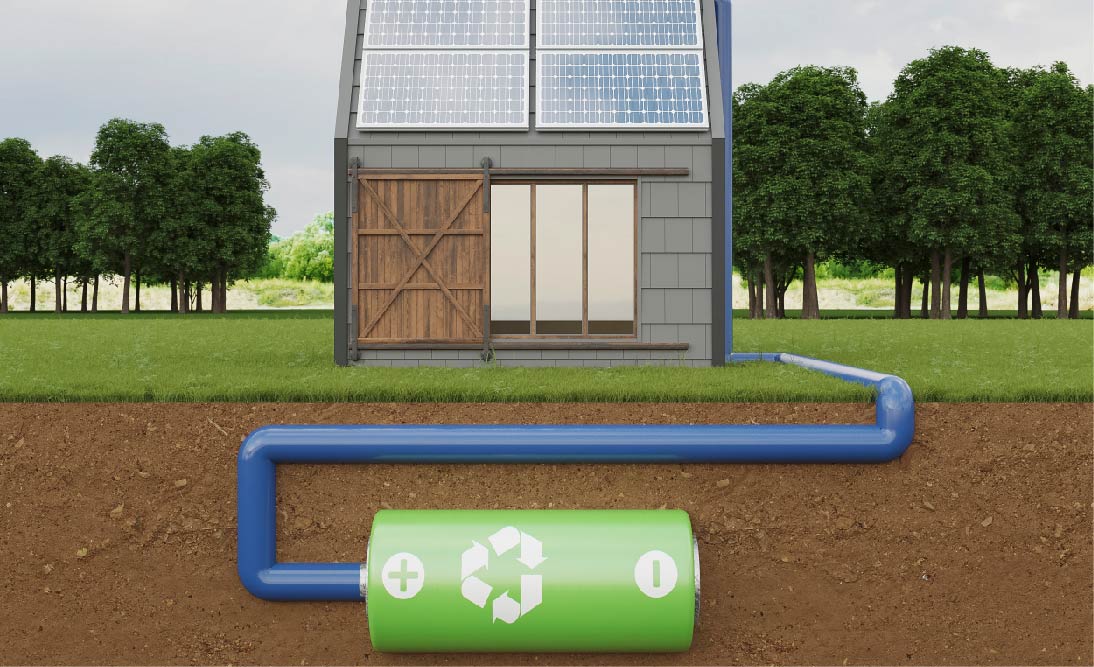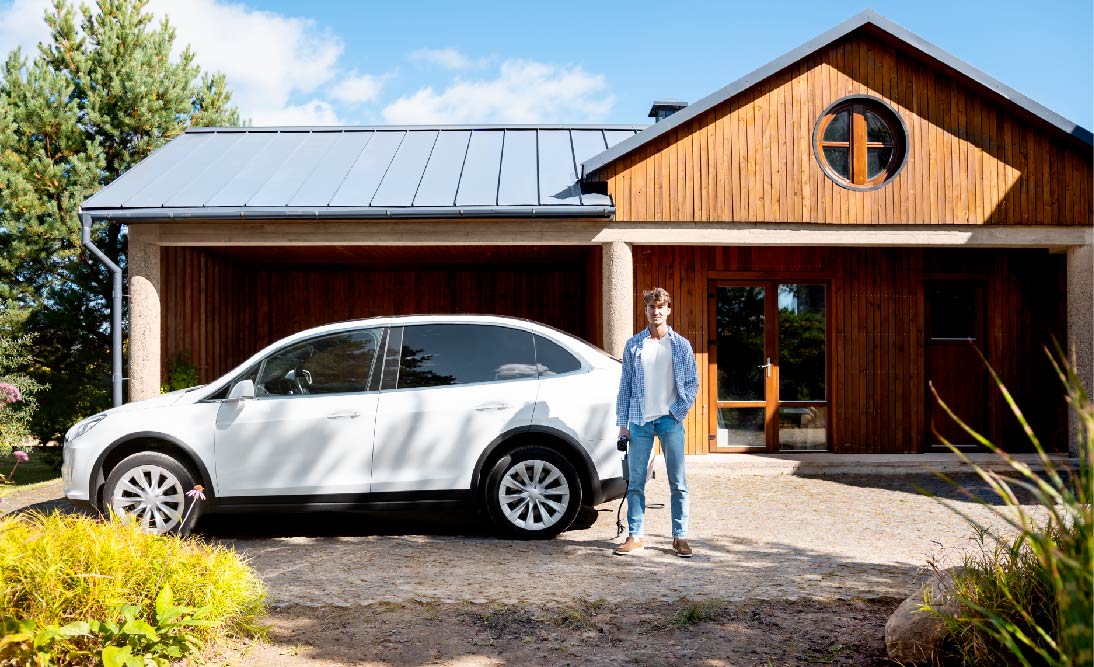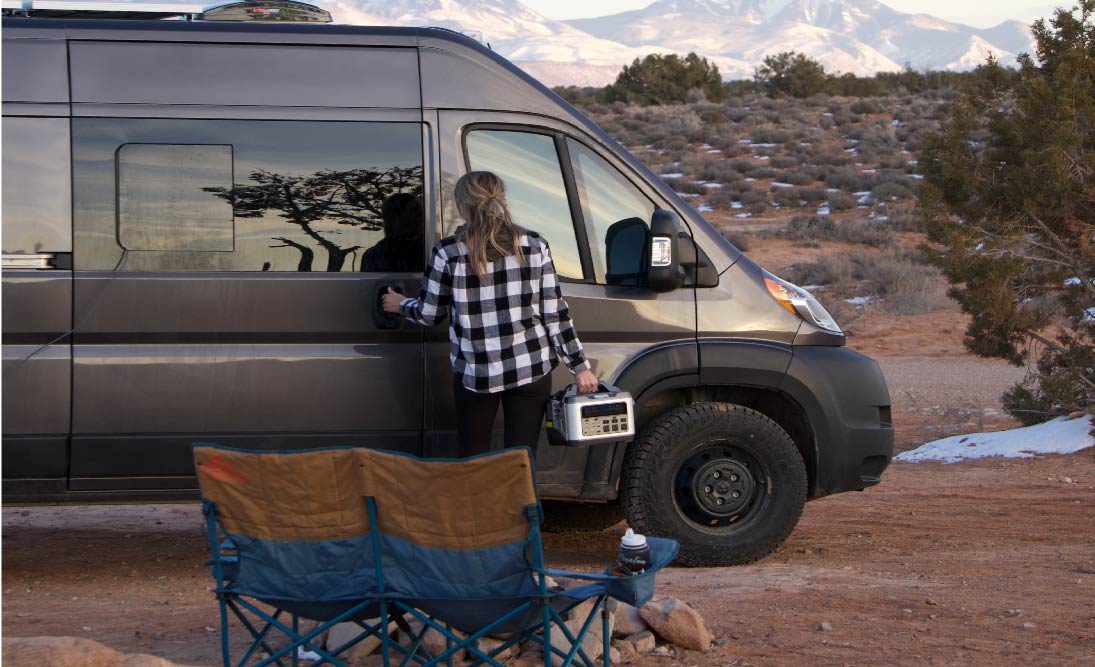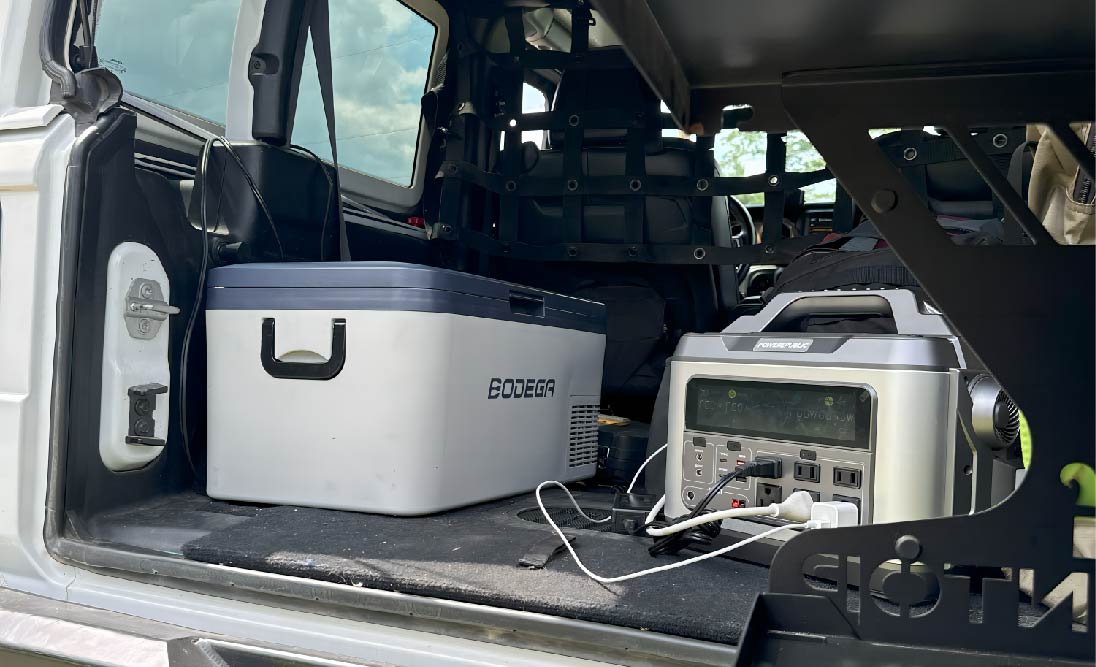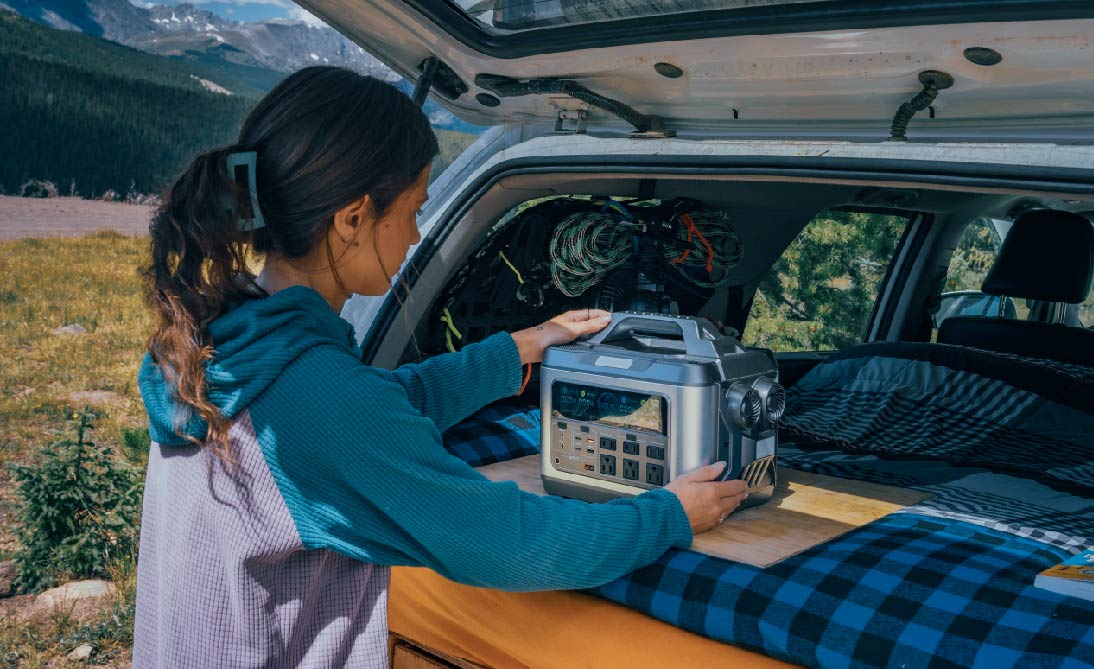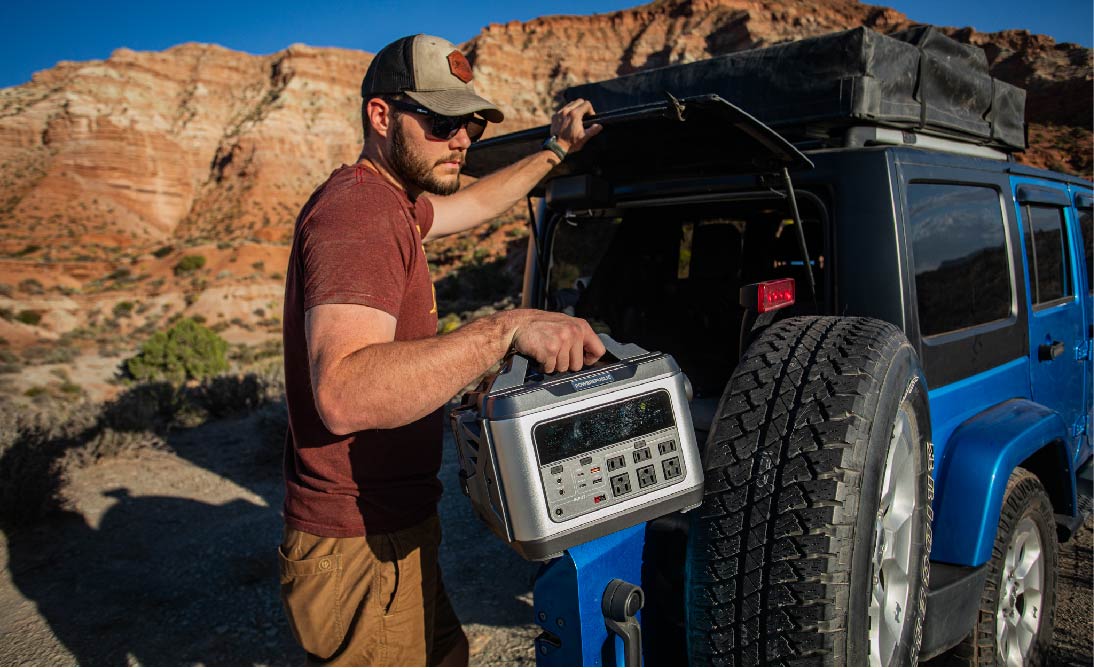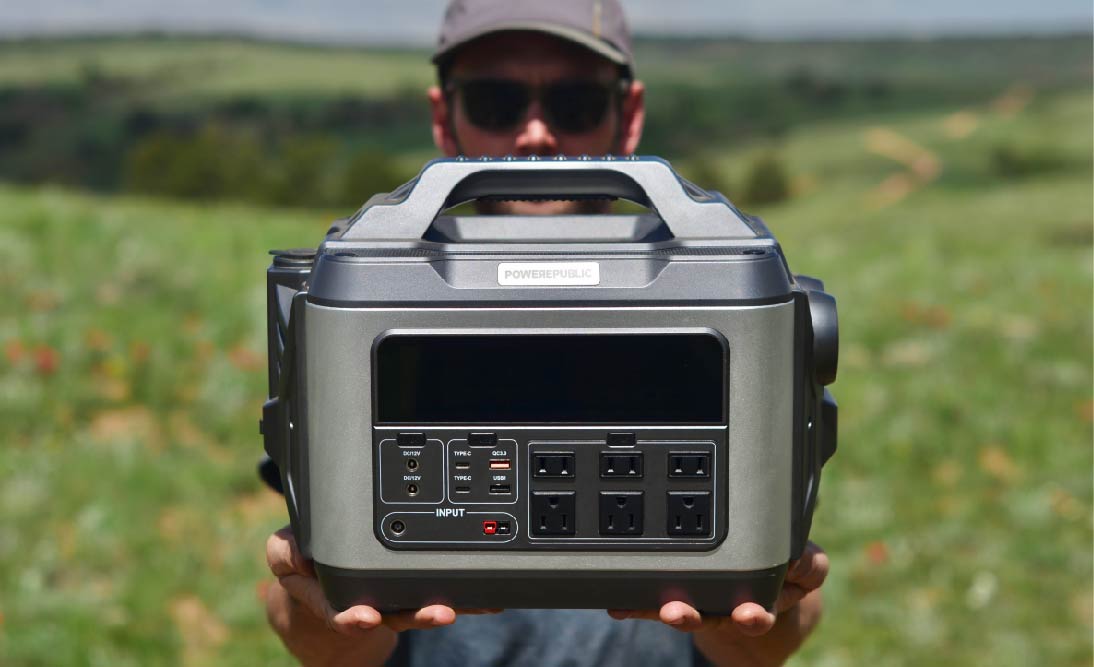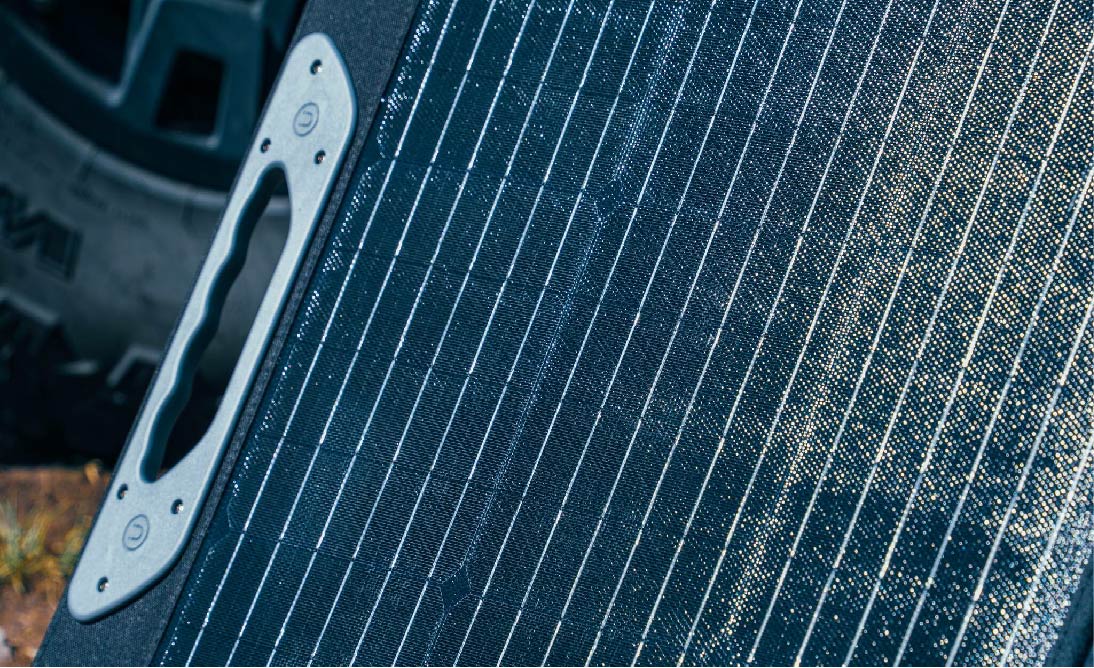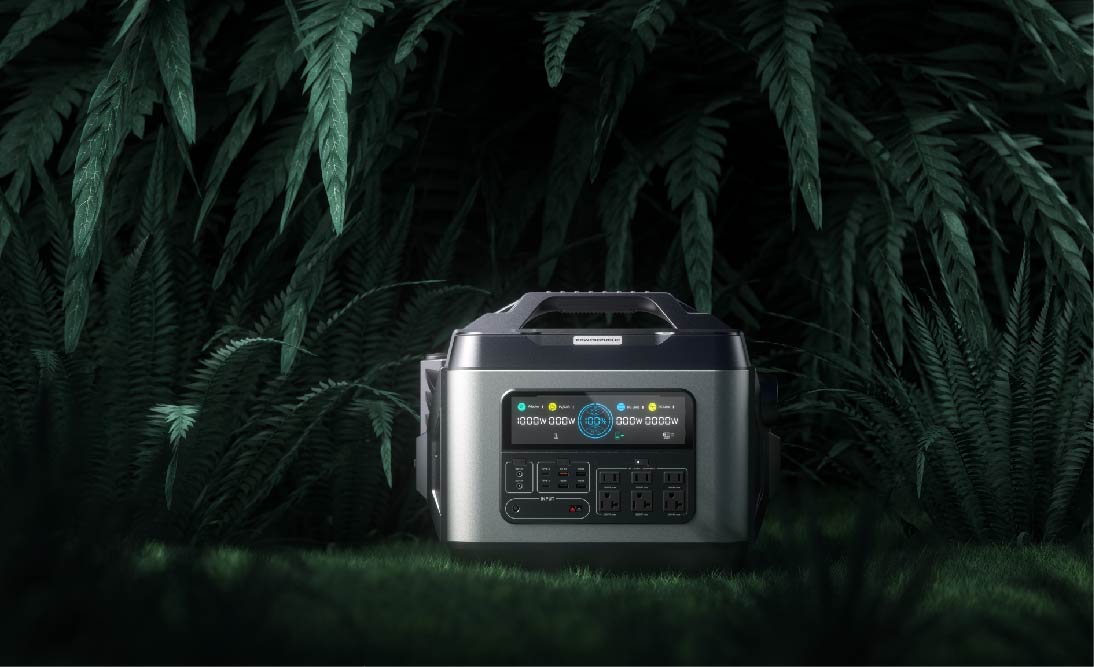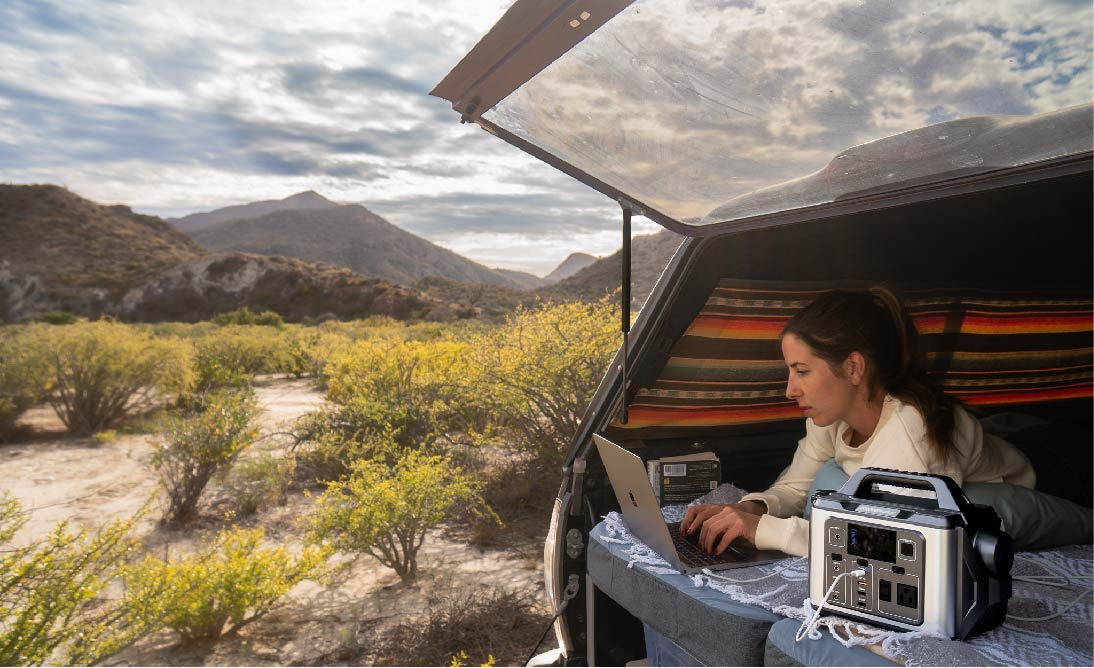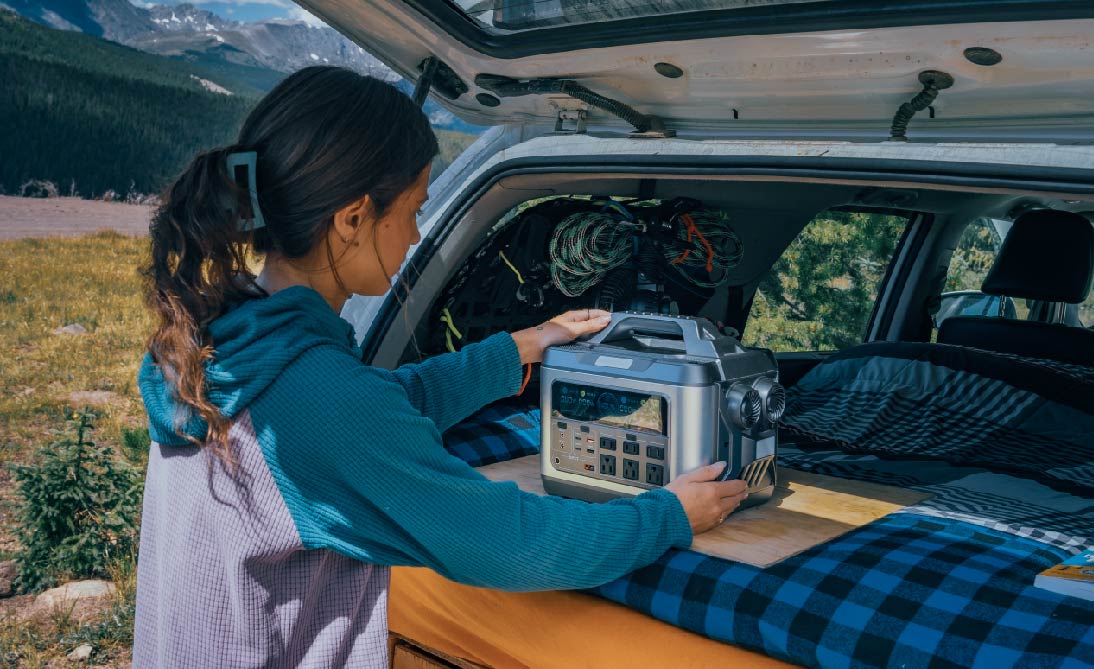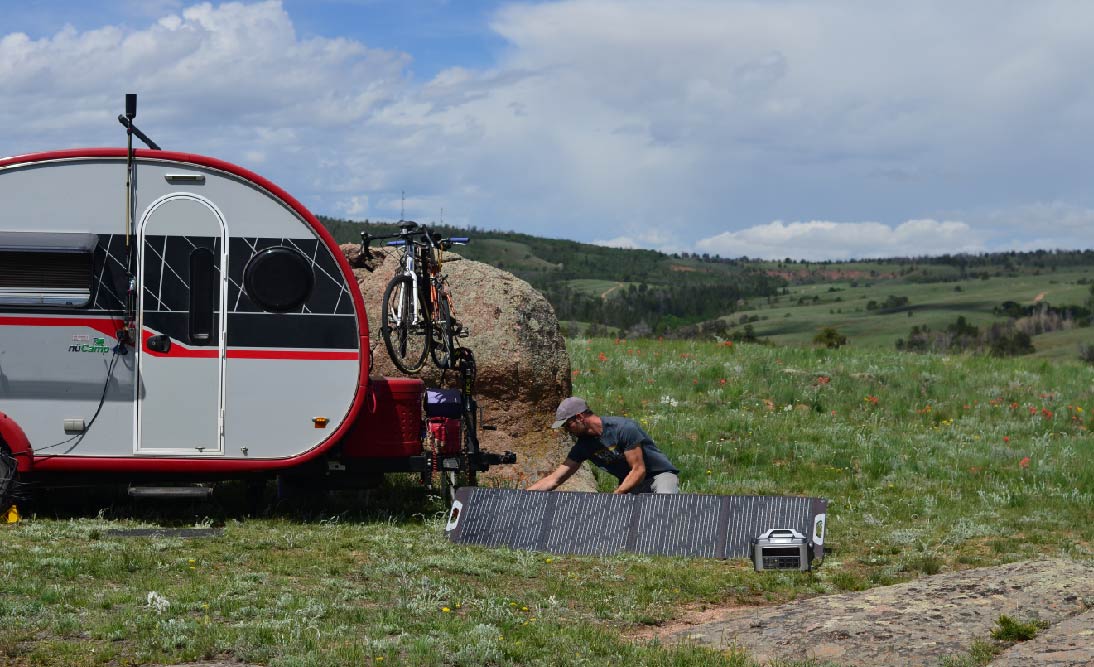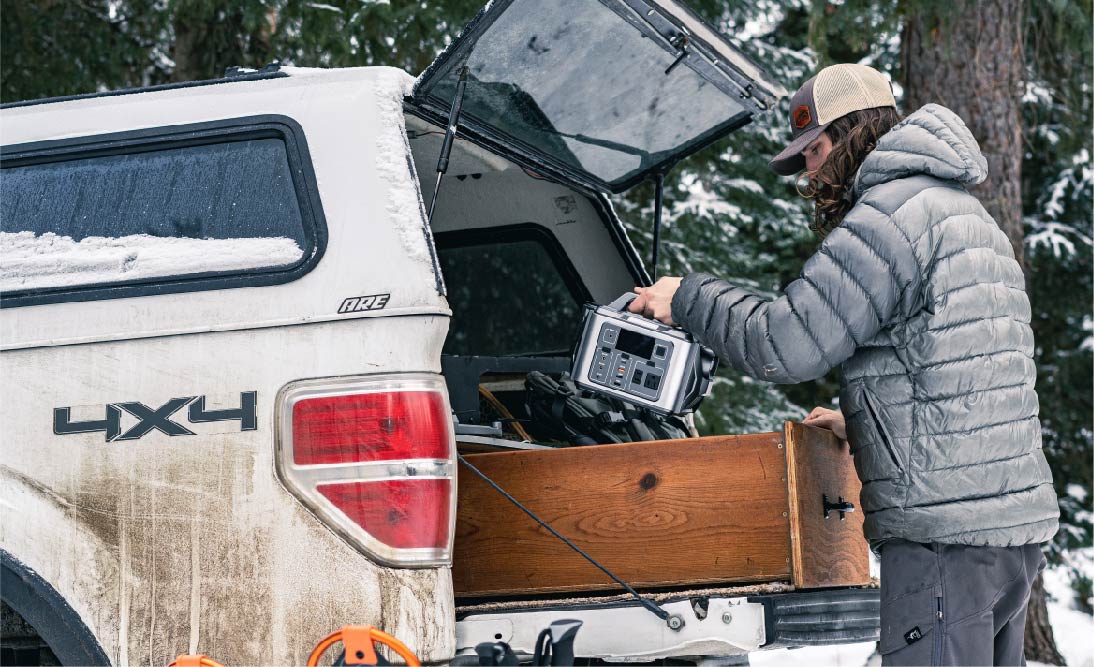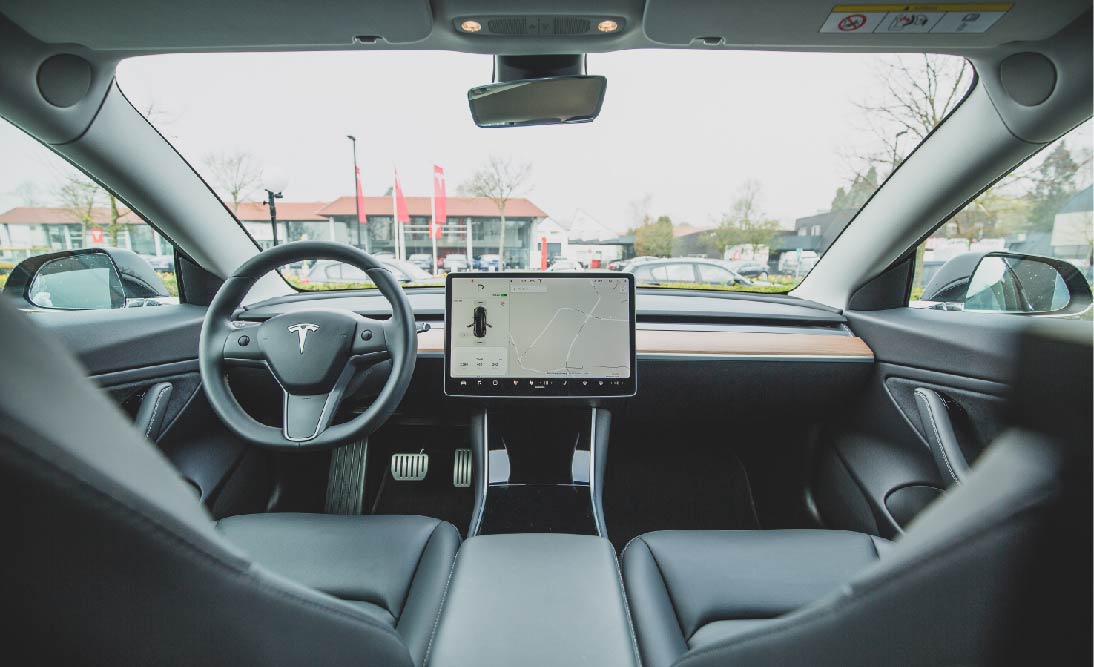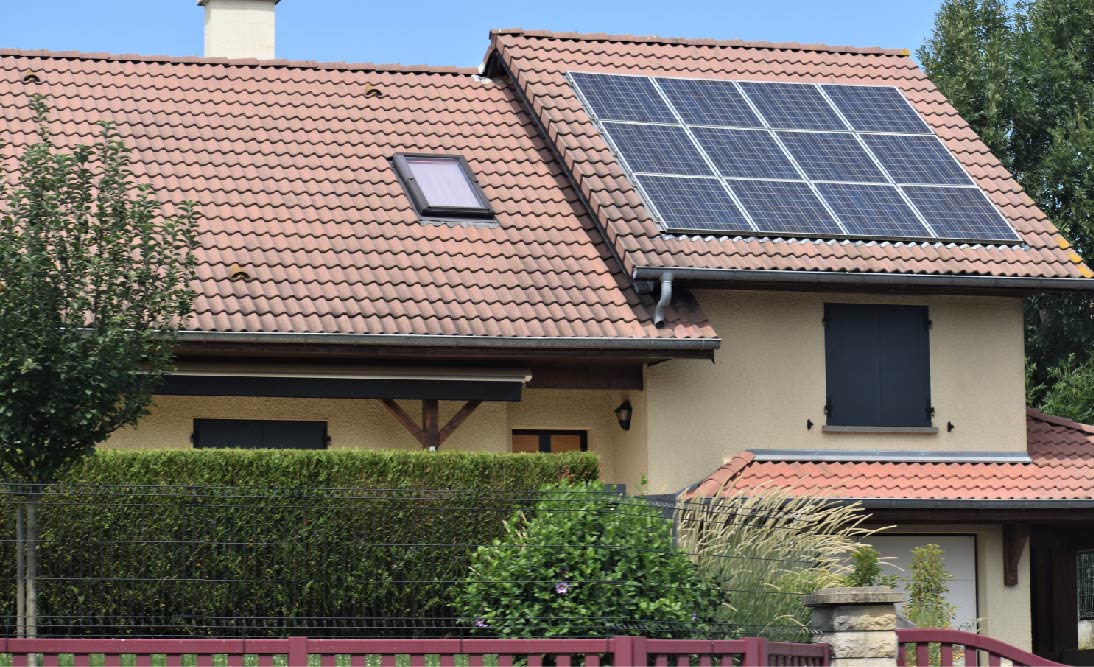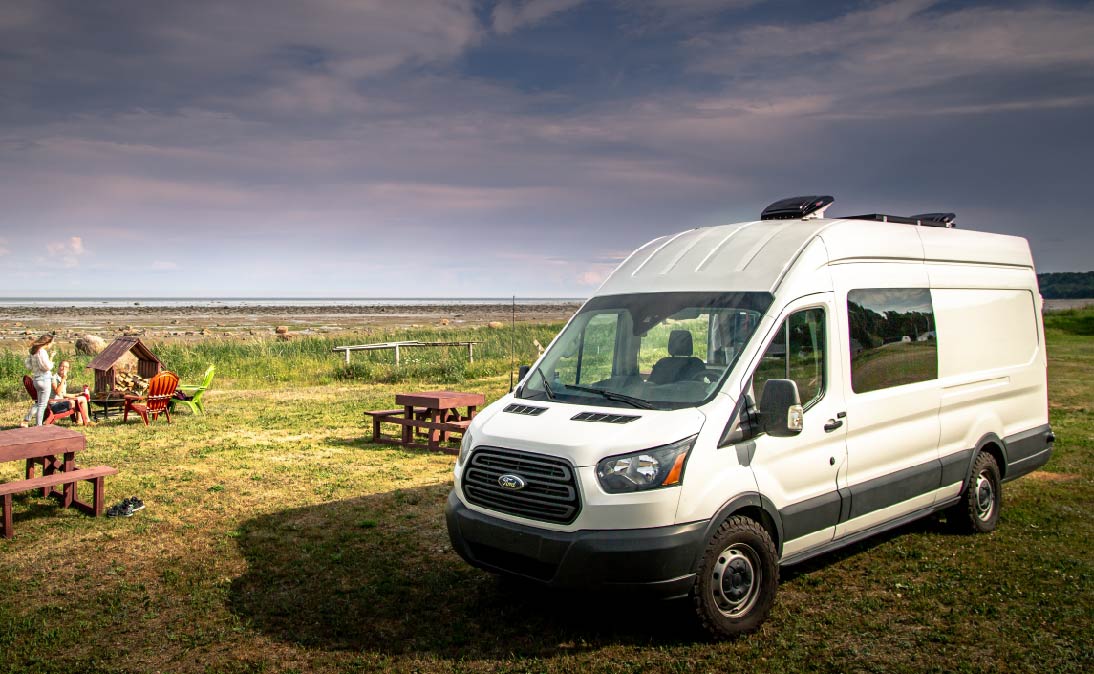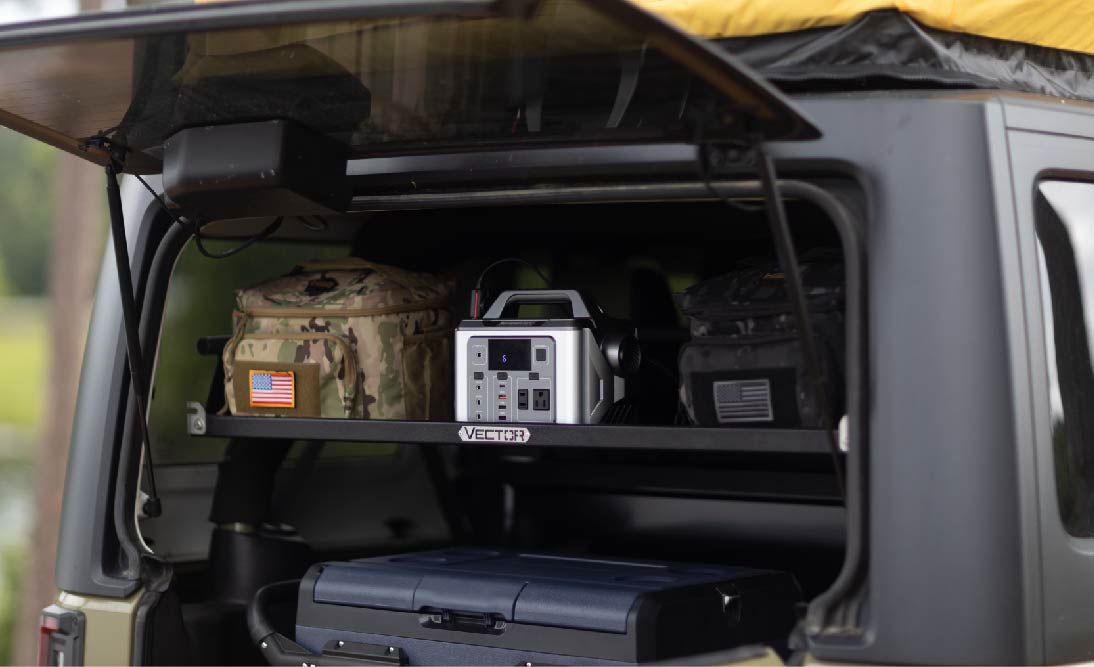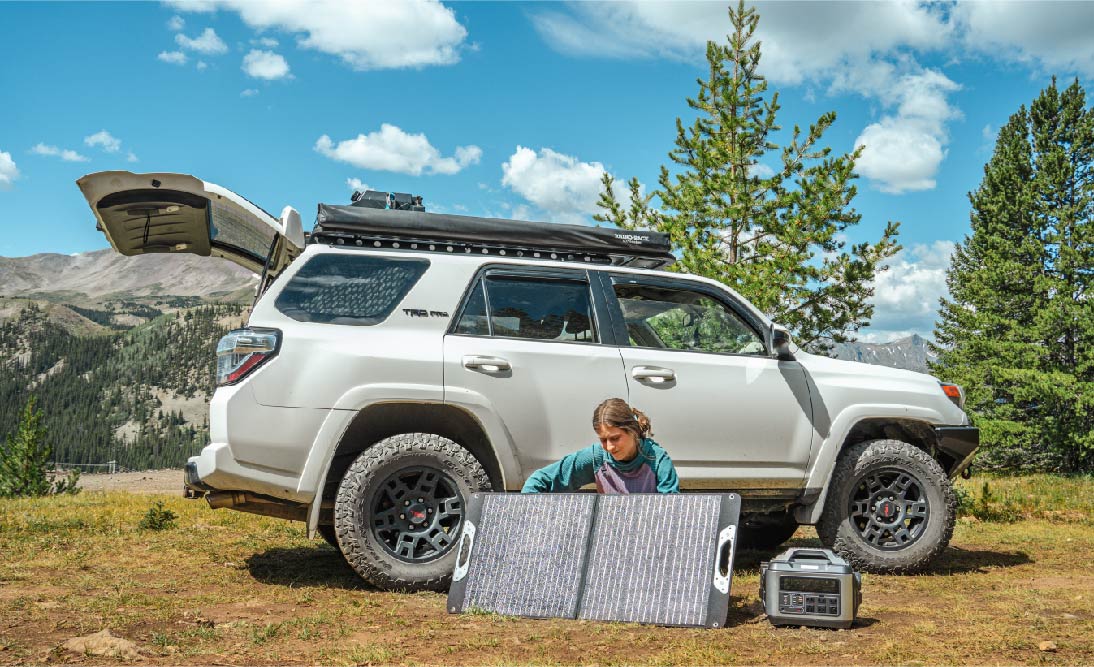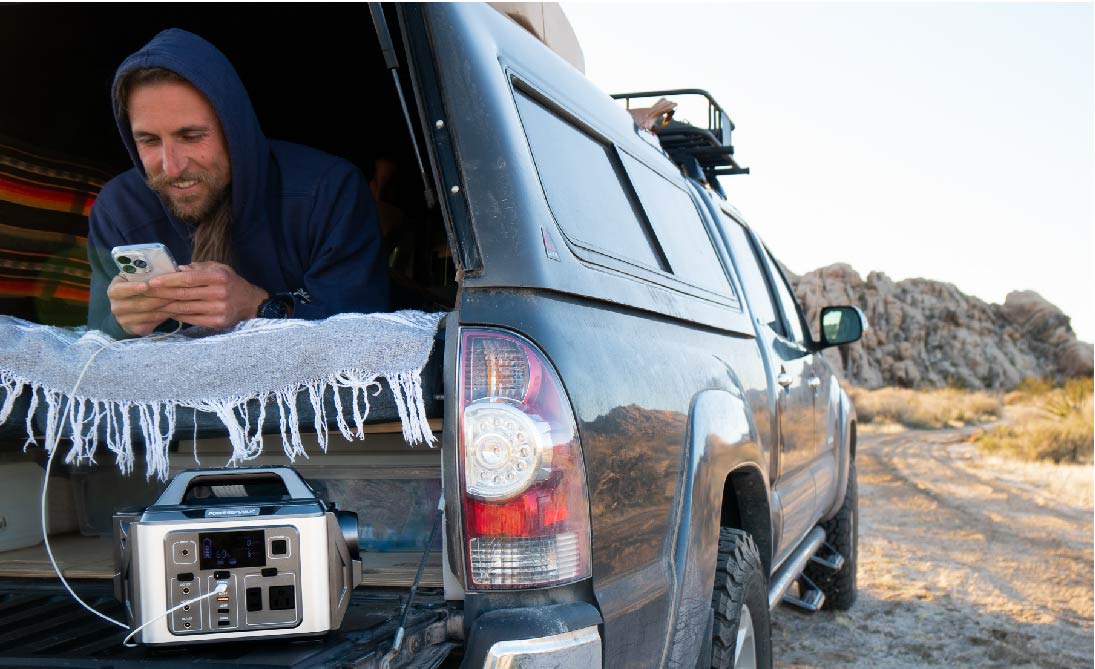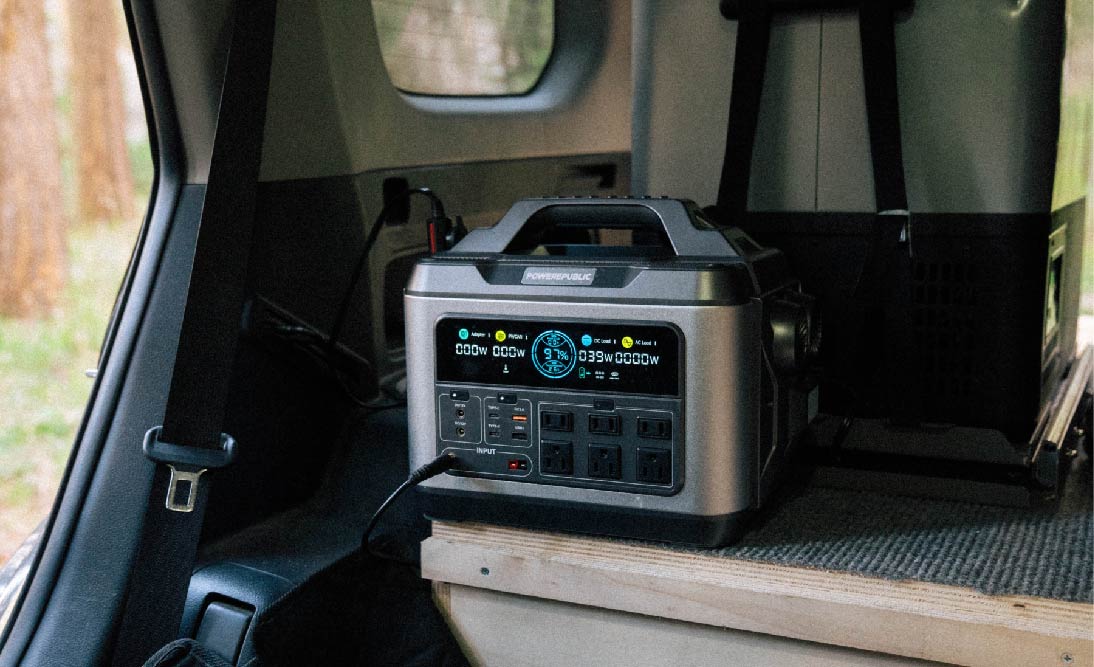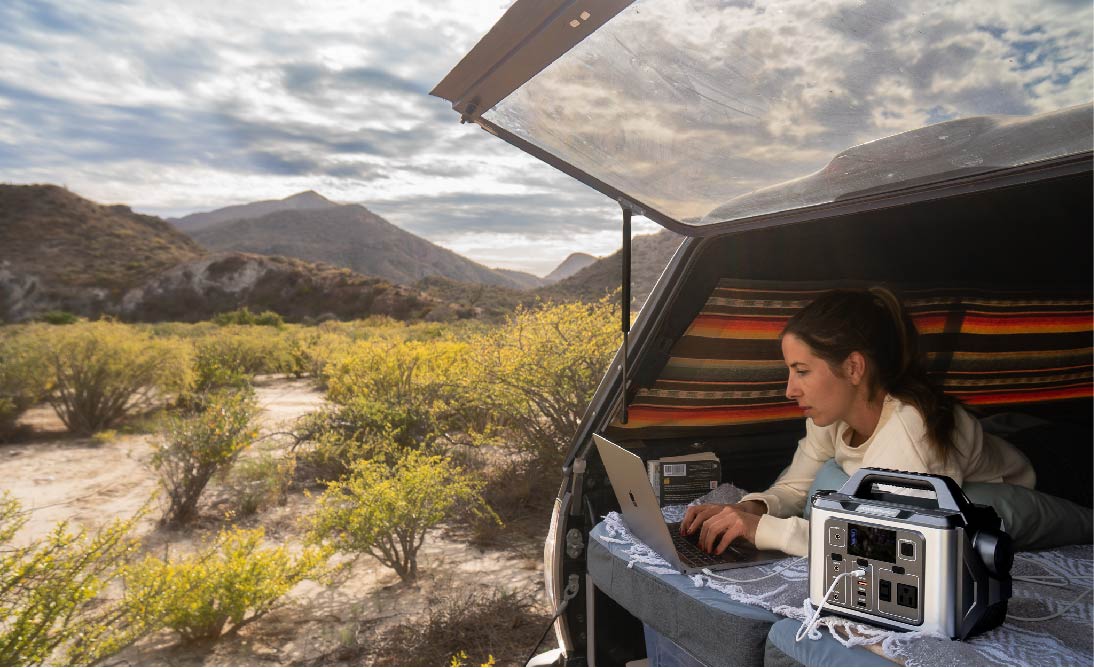Table of Contents:
As more people opt for sustainable, self-sufficient lifestyles, understanding the role and functionality of solar batteries becomes crucial. Whether you're looking to power a remote cabin, or a mobile home, or ensure your residential energy independence, the right batteries are pivotal to achieving a reliable solar off-grid system.
Choosing the best batteries for solar off-grid isn't just about capacity and price; it's about finding solutions that align with your energy needs and environmental conditions. This guide will walk you through the essentials of selecting the right batteries, delve into the feasibility of using portable power stations, and highlight the top battery models from POWEREPUBLIC tailored for off-grid usage.
We'll also answer some of your most pressing questions, such as the lifespan of portable power stations, their capacity to power an entire house, and whether they can run heavy appliances like refrigerators. By the end of this guide, you'll be equipped with all the information needed to decide on the best batteries for your solar off-grid setup, ensuring you stay powered up without hitches. Dive into our detailed sections to better understand how these technologies fit into your off-grid aspirations and solve real-world energy challenges.
Why Do We Need Batteries For Solar Off-Grid Living?
In the quest for a sustainable lifestyle, the best batteries for solar off-grid are essential for harnessing and optimizing solar energy. These batteries ensure that homes can function independently of the main grid, providing consistent, reliable power regardless of location.
Here's why they're so crucial:
Uninterrupted Power Supply
Solar panels are effective during daylight, but their productivity drops at night or during cloudy weather. This is where the best batteries for solar off-grid come into play. They store excess energy generated during sunny periods, making it available as needed, thereby ensuring a continuous power supply.
Energy Independence
For homes located in remote or rural areas, grid access can be unreliable or completely unavailable. The best batteries for solar off-grid make it possible to maintain an independent power system, free from the unpredictability of traditional grid power. This independence is not just liberating but often necessary for those in isolated locations.
Maximizing Solar Investments
Utilizing the best batteries for solar off-grid allows homeowners to capture and store surplus solar energy that would otherwise be wasted. For example, if your solar panels generate 50 kWh on a sunny day but your home only uses 30 kWh, the remaining 20 kWh can be stored rather than lost. This stored energy can then power your home during less sunny days or at night, maximizing your solar investment.
Example: Calculation of Battery Needs
Consider a household that consumes 30 kWh per day. To ensure a full day's supply without sunlight, you would need a battery system with at least 30 kWh of storage capacity. If each battery has a capacity of 5 kWh, you would need six of these batteries. This calculation helps in sizing the battery bank appropriately to meet daily energy needs effectively.
Reducing Environmental Impact
Integrating the best batteries for solar off-grid into your solar system contributes to a reduced carbon footprint. By relying less on fossil-fueled power plants and more on renewable sources, battery systems support environmental sustainability, reflecting a commitment to ecological preservation.
Reliability in Emergency Situations
In situations like power outages or natural disasters where traditional grid power can fail, the best batteries for solar off-grid provide a reliable power backup. This reliability is important for safety and comfort during emergencies.

So, the best batteries for solar off-grid are not just accessories but necessities for anyone serious about solar energy. They ensure that your investment in solar technology pays off, providing flexibility, independence, and security in your energy supply. This guide will further explore how to choose the right batteries to meet your specific off-grid needs, enhancing your move towards a more sustainable and self-sufficient lifestyle.
How To Choose the Best Batteries For Solar Off-Grid?
Selecting the best batteries for solar off-grid is critical to ensuring a stable and efficient energy system for your home or business. Here’s a straightforward guide to help you make the right choice, enhancing both the performance and longevity of your solar energy system.
Understand Battery Types
Some different types of batteries are widely applied and used in solar off-grid systems, such as lead-acid, lithium-ion, and saltwater batteries. Each type has its advantages and drawbacks:
-
Lead-Acid: These are traditionally used for solar and are cost-effective but have a shorter lifespan and require regular maintenance.
-
Lithium-Ion: Increasingly popular due to their longer lifespan and efficiency, they are more expensive upfront but provide better long-term value.
-
Saltwater: The newest battery type on the market, these are environmentally friendly and do not contain heavy metals, making them easy to recycle.
Choosing the best batteries for solar off-grid often means balancing cost with performance and environmental impact.

Consider Capacity and Power Requirements
To determine the right battery size, you must calculate your daily power usage in kilowatt-hours (kWh) and consider the energy output of your solar panels. For example, if your home uses 30 kWh per day, you'll need batteries that can store at least this amount. It's also wise to have additional capacity to cover days with less sunlight.
Depth of Discharge (DoD)
The Depth of Discharge refers to how much a battery can be used relative to its total capacity. Lithium-ion batteries can typically handle a deeper discharge than lead-acid batteries. Choosing a battery that allows for a deeper DoD can enhance its lifespan and efficiency.
Battery Efficiency
Battery efficiency is key when selecting the best batteries for solar off-grid. This efficiency determines how much of the stored energy can be used. For instance, if a battery has an efficiency of 90%, then 90% of the stored energy can be converted back into usable electricity.
Lifecycle and Durability
Consider how many cycles (full charge and discharge) the battery can handle before its capacity begins to degrade. Higher-quality batteries with more life cycles are preferable for solar off-grid systems to minimize replacement costs and ensure consistent power availability.
Cost vs. Value
While the initial cost is an important consideration, the overall value over the life of the battery is crucial. Calculate the cost per cycle to understand which battery offers the best return on investment. For instance, a battery that costs $1,000 and lasts for 10,000 cycles offers a better long-term value than one costing $500 and lasting only 1,000 cycles.
Environmental Conditions
The best batteries for solar off-grid must be suited to your local climate conditions. Temperature can significantly impact battery performance and lifespan. For example, lithium-ion batteries perform better in colder climates compared to lead-acid, which are more robust in hotter environments.
Example Calculation
If you need a battery system for a home using 30 kWh per day with a solar panel output of 40 kWh on sunny days, a battery capacity of at least 35 kWh is advisable to account for inefficiencies and days with lower solar production. If each lithium-ion battery provides 7 kWh, you would need five batteries.
In summary, choosing the best batteries for solar off-grid involves understanding the types of batteries, analyzing your energy needs, considering battery efficiencies, and evaluating environmental factors. By following these guidelines, you can ensure that your solar system works optimally, meeting your energy demands while being cost-effective and environmentally sustainable.
Can We Use Portable Power Stations For Solar Off-Grid?
Yes, portable power stations can be used for solar off-grid applications, but they are best suited for specific scenarios with less power demand. Below is an overview of the pros, cons, and key factors to consider when determining if a portable power station is the best battery for your solar off-grid needs.
Pros of Portable Power Stations:
-
Mobility: They are highly portable, making them ideal for temporary setups or mobile applications such as camping, RV living, or remote job sites.
-
Ease of Use: Portable power stations are generally plug-and-play, requiring minimal setup and maintenance, unlike more complex traditional solar battery systems.
-
Versatility: They often include multiple output types (USB, AC, DC) to support a variety of devices and appliances.
Cons of Portable Power Stations:
-
Limited Capacity: While convenient, they typically offer less storage capacity compared to fixed solar battery systems. This limits their use to smaller energy needs unless multiple units are combined.
-
Higher Cost for Scalability: To match the capacity of traditional systems, multiple portable units may be needed, which can be cost-prohibitive.
-
Durability: They may not be as durable as stationary batteries designed specifically for long-term, heavy-duty solar applications.

Factors to Consider:
-
Energy Requirements: Calculate your energy needs to see if a portable power station can meet them. For light usage, such as charging phones, powering small appliances, or lighting, a portable power station might suffice. Example: If you need a power source for a weekend camping trip requiring 2 kWh/day, a portable power station with a capacity of 1 kWh and the ability to recharge daily via solar panels could be adequate.
-
Integration with Solar Panels: Check compatibility with solar panels. Some portable power stations are designed to easily connect with solar panels, making them a viable option for best batteries for solar off-grid scenarios.
-
Cost-Effectiveness: Compare the cost per kWh, including the lifespan of the unit. Portable power stations might seem affordable initially but consider the total cost over their usable life.
-
Environmental Conditions: Evaluate the operating environment. Some portable power stations have limitations in extreme temperatures, which could affect performance in certain off-grid locations.
Example Calculation:
Suppose you're setting up a small off-grid cabin that uses an average of 5 kWh per day. You choose a portable power station with a capacity of 2 kWh. To fully cover your energy needs, especially on days without sufficient sunlight, you might need several units or a supplementary energy source.
While portable power stations can serve as the best batteries for solar off-grid in certain conditions, they are more suitable for smaller-scale or temporary energy needs. For larger or more permanent setups, more robust, traditional battery systems might be necessary to ensure consistent and reliable power supply. Consider your specific energy requirements, the scalability of your system, and the total cost of ownership when deciding if a portable power station is right for your off-grid solar system.
3 Best Batteries For Solar Off-Grid: POWEREPUBLIC Models
From the information above, we know that portable power stations can be used for solar off-grid applications, but they are best suited for specific scenarios with lower power demands. When paired with portable solar panels, these units form solar generator kits.
Whether you live in a campervan, an RV, an overlanding vehicle, or any other type of motorhome, having durable and reliable portable power stations along with solar panels can ensure you have sufficient power wherever you roam.
Unlike traditional batteries for solar off-grid, which must be paired with an inverter, solar panels, and a charge controller to function, portable power stations are compact and all-in-one, saving you a lot of time and effort. If you are looking for options like these, we recommend the POWEREPUBLIC T1200, T2200, and T3000 models.

To better understand their functionality, check out the table below for more details:
|
Models/Specs |
|||
|
Capacity |
1110Wh |
2240Wh |
3200Wh |
|
1200W/2600W |
2200W/4500W |
3000W/6000W |
|
|
Applications |
Vanlife, RVlife, Overlanding, Boondocking |
Off-Grid Living, Home Back Up |
Off-Grid Living, Home Back Up |
|
Battery Type |
Lithium-Ion |
LiFePO4 |
LiFePO4 |
|
Number of Output Ports |
13 Output Ports |
15 Output Ports |
15 Output Ports |
|
Charging Methods |
AC Adapter, Solar Panel, Car Charger |
AC Adapter, Solar Panel, Car Charger |
AC Adapter, Solar Panel, Car Charger |
|
Solar Input |
230W Max. |
230W Max. |
230W Max. |
|
Weight |
31Ibs/14Kg |
64Ibs/30Kg |
88Ibs/40Kg |
|
Dimensions |
14.3*9.3*10.6 Inch |
18.3*11.8*12.2 inch |
18.3*11.8*14.5 inch |
|
4.5 out of 5 on Trustpilot |
|||
|
Est.Operation Time(h) |
The operation time(h)=Portable Power Station’s Capacity(Wh) * 0.85 / The power of Items(W) |
||
So if you are searching for the best batteries for solar off-grid that are all-in-one, portable, and convenient, choose these 3 POWEREPUBLIC models to power your next adventure.
FAQ I: How Long Do Portable Power Stations Last?
The lifespan of portable power stations primarily depends on the battery and how frequently the unit is charged and discharged. Most portable power stations use lithium-ion batteries, which typically have a lifespan of 500 to 1000 charge cycles before their capacity starts to degrade significantly. For example, if you use and recharge your portable power station once a week, it could last between 10 and 20 years. However, heavy usage could reduce this lifespan considerably.
Example Calculation: Suppose a portable power station has a lifespan of 800 cycles and you use it 100 times a year (about twice a week). It would last approximately 8 years under these conditions.

FAQ II: Can I Use a Portable Power Station to Power an Entire House?
Portable power stations can power some appliances in a house but are generally not capable of powering an entire house continuously due to their limited capacity. Most portable power stations range from 500 to 5000 watt-hours, suitable for running small appliances and electronics but insufficient for high-demand devices like central heating systems or electric stoves over a full day.
Example: If a house typically consumes about 30 kWh per day and you have a portable power station with a capacity of 2 kWh, it would only cover a fraction of daily energy needs. Essential items like lights, a laptop, and a small refrigerator could be powered for a few hours, but larger appliances would quickly deplete the power station.

FAQ III: Can a Portable Power Station Run a Refrigerator?
Yes, a portable power station can run a refrigerator, but the duration will depend on the capacity of the power station and the energy efficiency of the refrigerator. A typical modern refrigerator requires about 1 to 2 kWh per day.
Example Calculation: If you have a portable power station with a capacity of 1 kWh and a refrigerator that consumes 1.5 kWh per day, the power station could theoretically run the refrigerator for about 16 hours (assuming the power station is fully charged and no other devices are drawing power). However, it's important to consider that refrigerators cycle on and off, which can affect actual power usage and extend the time slightly.

Final Thoughts
Choosing the best batteries for solar off-grid is essential for anyone looking to maintain a reliable and efficient energy system while embracing a sustainable lifestyle. Throughout this guide, we've explored various options, highlighting the importance of selecting the right type of battery to meet your specific needs, whether you're powering a remote cabin, an RV, or a residential setup.
For those in mobile or temporary living situations, portable power stations, paired with solar panels, offer a flexible and convenient solution. These compact, all-in-one units provide an excellent alternative to traditional setups, requiring less setup and maintenance. Our recommended POWEREPUBLIC models, the T1200, T2200, and T3000, are prime examples of portable power stations that combine efficiency, portability, and sufficient capacity to meet smaller energy demands.
However, for larger or more permanent installations, more robust, traditional battery systems may be necessary to ensure consistent and reliable power. In any case, the best batteries for solar off-grid should align with your energy consumption, environmental conditions, and budget to maximize the benefits of solar power and support your off-grid aspirations effectively.
By understanding the different types of batteries, including portable options and their applications, you can make an informed decision that guarantees energy independence and contributes to a reduced carbon footprint, securing a sustainable future.
Choose POWEREPUBLIC Portable Power Stations for Your Next Trip!
